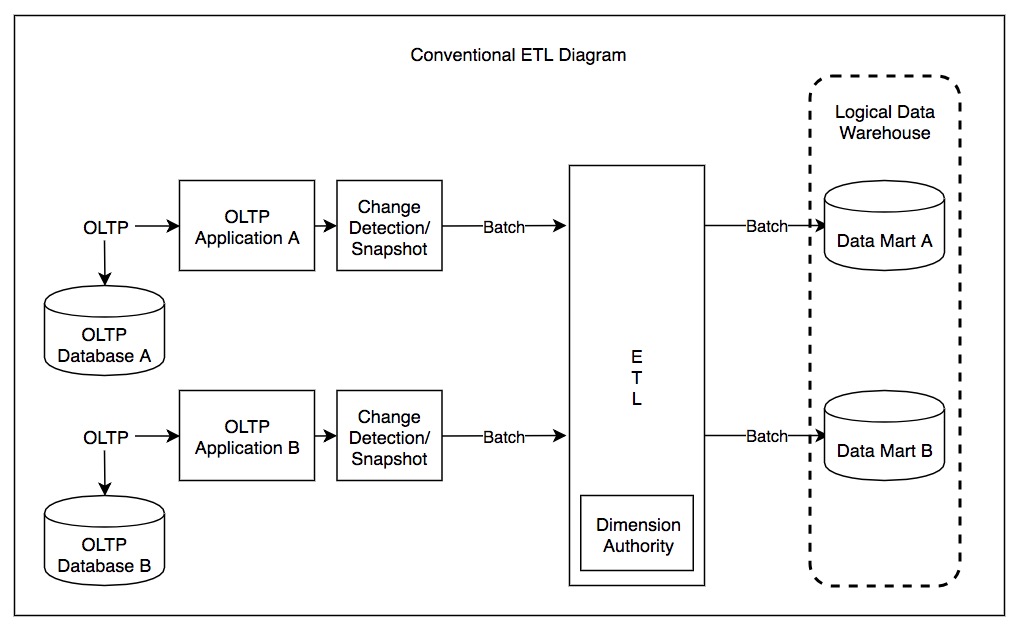|
Apache Sqoop
Sqoop is a command-line interface application for transferring data between relational databases and Hadoop. The Apache Sqoop project was retired in June 2021 and moved to the Apache Attic. Description Sqoop supports incremental loads of a single table or a free form SQL query as well as saved jobs which can be run multiple times to import updates made to a database since the last import. Imports can also be used to populate tables in Hive or HBase. Exports can be used to put data from Hadoop into a relational database. Sqoop got the name from "SQL-to-Hadoop". Sqoop became a top-level Apache project in March 2012. Informatica provides a Sqoop-based connector from version 10.1. Pentaho provides open-source Sqoop based connector steps, ''Sqoop Import'' and ''Sqoop Export'', in their ETL suite Pentaho Data Integration since version 4.5 of the software. Microsoft uses a Sqoop-based connector to help transfer data from Microsoft SQL Server databases to Hadoop. Couchbase, Inc. also ... [...More Info...] [...Related Items...] OR: [Wikipedia] [Google] [Baidu] |
Apache Software Foundation
The Apache Software Foundation (ASF) is an American nonprofit corporation (classified as a 501(c)(3) organization in the United States) to support a number of open source software projects. The ASF was formed from a group of developers of the Apache HTTP Server, and incorporated on March 25, 1999. As of 2021, it includes approximately 1000 members. The Apache Software Foundation is a decentralized open source community of developers. The software they produce is distributed under the terms of the Apache License and is a non-copyleft form of free and open-source software (FOSS). The Apache projects are characterized by a collaborative, consensus-based development process and an open and pragmatic software license, which is to say that it allows developers who receive the software freely, to re-distribute it under nonfree terms. Each project is managed by a self-selected team of technical experts who are active contributors to the project. The ASF is a meritocracy, implying t ... [...More Info...] [...Related Items...] OR: [Wikipedia] [Google] [Baidu] |
Extract, Transform, Load
In computing, extract, transform, load (ETL) is a three-phase process where data is extracted, transformed (cleaned, sanitized, scrubbed) and loaded into an output data container. The data can be collated from one or more sources and it can also be outputted to one or more destinations. ETL processing is typically executed using software applications but it can also be done manually by system operators. ETL software typically automates the entire process and can be run manually or on reoccurring schedules either as single jobs or aggregated into a batch of jobs. A properly designed ETL system extracts data from source systems and enforces data type and data validity standards and ensures it conforms structurally to the requirements of the output. Some ETL systems can also deliver data in a presentation-ready format so that application developers can build applications and end users can make decisions. The ETL process became a popular concept in the 1970s and is often used in d ... [...More Info...] [...Related Items...] OR: [Wikipedia] [Google] [Baidu] |
Apache Software Foundation Projects
The Apache () are a group of culturally related Native American tribes in the Southwestern United States, which include the Chiricahua, Jicarilla, Lipan, Mescalero, Mimbreño, Ndendahe (Bedonkohe or Mogollon and Nednhi or Carrizaleño and Janero), Salinero, Plains (Kataka or Semat or "Kiowa-Apache") and Western Apache ( Aravaipa, Pinaleño, Coyotero, Tonto). Distant cousins of the Apache are the Navajo, with whom they share the Southern Athabaskan languages. There are Apache communities in Oklahoma and Texas, and reservations in Arizona and New Mexico. Apache people have moved throughout the United States and elsewhere, including urban centers. The Apache Nations are politically autonomous, speak several different languages, and have distinct cultures. Historically, the Apache homelands have consisted of high mountains, sheltered and watered valleys, deep canyons, deserts, and the southern Great Plains, including areas in what is now Eastern Arizona, Northern Mexico (Son ... [...More Info...] [...Related Items...] OR: [Wikipedia] [Google] [Baidu] |
O'Reilly Media
O'Reilly Media (formerly O'Reilly & Associates) is an American learning company established by Tim O'Reilly that publishes books, produces tech conferences, and provides an online learning platform. Its distinctive brand features a woodcut of an animal on many of its book covers. Company Early days The company began in 1978 as a private consulting firm doing technical writing, based in the Cambridge, Massachusetts area. In 1984, it began to retain publishing rights on manuals created for Unix vendors. A few 70-page "Nutshell Handbooks" were well-received, but the focus remained on the consulting business until 1988. After a conference displaying O'Reilly's preliminary Xlib manuals attracted significant attention, the company began increasing production of manuals and books. The original cover art consisted of animal designs developed by Edie Freedman because she thought that Unix program names sounded like "weird animals". Global Network Navigator In 1993 O'Reilly Media creat ... [...More Info...] [...Related Items...] OR: [Wikipedia] [Google] [Baidu] |
Database Trends And Applications
In computing, a database is an organized collection of data stored and accessed electronically. Small databases can be stored on a file system, while large databases are hosted on computer clusters or cloud storage. The design of databases spans formal techniques and practical considerations, including data modeling, efficient data representation and storage, query languages, security and privacy of sensitive data, and distributed computing issues, including supporting concurrent access and fault tolerance. A database management system (DBMS) is the software that interacts with end users, applications, and the database itself to capture and analyze the data. The DBMS software additionally encompasses the core facilities provided to administer the database. The sum total of the database, the DBMS and the associated applications can be referred to as a database system. Often the term "database" is also used loosely to refer to any of the DBMS, the database system or an application ... [...More Info...] [...Related Items...] OR: [Wikipedia] [Google] [Baidu] |


